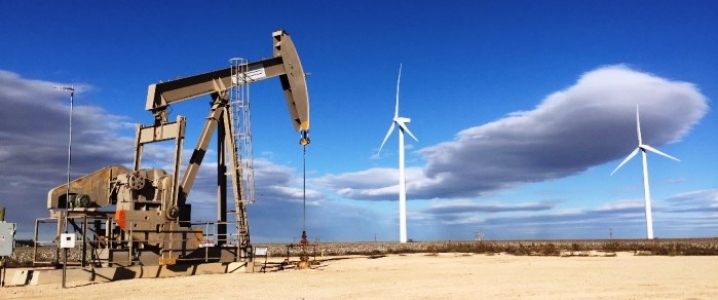The shale industry is set to enjoy its best year, arguably in its history, but some drillers are not benefitting as much as expected because they locked themselves into hedges at lower prices.
Shale drilling has historically been a loss-making proposition. The precipitous decline in output from shale wells meant that companies had to use the revenue from one well to drill the next well. Cash was continuously recycled back into new wells, and shareholders rarely saw any profits flow back to them.
That is set to change this year. “Higher prices and operational improvements are putting the US shale sector on track to achieve positive free cash flow in 2018 for the first time ever,” the International Energy Agency (IEA) wrote in a recent report on energy investment.
But not everyone is raking in as much money as they might have wanted. A handful of shale companies posted lower-than-expected profits in recent days, owing to the fact that they secured hedges for their second quarter production at prices that were lower than the prevailing market price.
Among the companies that undershot expectations were Devon Energy, Anadarko Petroleum and Chesapeake Energy. As Reuters notes, many shale companies hedged at around $55 per barrel in the second quarter while WTI was much higher.
Related: A Price Spike Looms For Natural Gas
Those hedges were likely secured last year, when oil traded at lower levels. The shale companies locked in those positions as a risk management strategy, guarding against the possibility of a meltdown in prices. If the economy had crashed or OPEC decided to flood the market once again for some reason, and oil prices fell back below $50 per barrel this year, those companies would have been protected.
As it happened, however, prices surged in the first half of this year. WTI surpassed $70 per barrel in the second quarter, rising to its highest point in more than three years. Some shale drillers were stuck selling their oil for prices in the mid-$50s. Anadarko said that it missed out on nearly $300 million in pre-tax revenue because it was locked into hedges.
Devon Energy also missed expectations for its quarterly earnings, noting that it earned 20 percent less in oil sales than would have been the case absent the hedges. When asked if the company would revise its hedging plans, Devon’s CEO David Hager said it would stick with the strategy. “We think it's important to underpin the cash flows of the company to make sure that we have a certain level of consistency in cash flows to be able to fund the capital program,” Hager said on an earnings call. “And so we are doing this through a systematic program largely, where we're reaching out 18 months and hedging production at any given time.”
He also cited the fact that hedging actually worked out when Devon bet on differentials. Oil prices in Midland, Texas have consistently traded at hefty discount relative to WTI in Houston, a reflection of the pipeline constraints in the Permian.
Meanwhile, according to Reuters, Pioneer Natural Resources sold its oil for an average price of $52.62 per barrel, or $4.23 per barrel less than analysts had assumed.
“We’re pretty bullish on oil and we don’t think (companies) should be giving up the upside and don’t think they should run the market that way. Take the price,” Paul Sankey, an oil industry analyst for Mizuho Securities USA, told Reuters. Sankey was the analyst that questioned Devon Energy’s CEO on whether or not he’d reconsider the hedging strategy.
Related: Russia’s High Risk Global Oil Strategy
Interestingly, Tony Vaughn, the COO of Devon Energy tried to highlight the one area in which hedges have worked in the company’s favor. Unprompted, he pointed to the company’s heavy oil operations in Alberta. “The last area I will touch on is our attractive WCS hedges in Canada. In 2018, we have roughly half our production hedged at $15 off of WTI,” he told analysts and shareholders on an earnings call. Western Canada Select has traded at a steep discount, dropping as low as $30 below WTI at some points this year.
Looking forward at 2019, there is still a ton of uncertainty. Sankey of Mizuho might want shale companies to rid themselves of hedges to enjoy the upside of oil prices, but there is no guarantee that prices continue to rise.
In fact, a Wall Street Journal survey of nine investment banks shows that pricing forecasts are all over the map. At the high end, BNP Paribas has WTI rising to $81 per barrel in the second quarter of 2019. But Commerzbank puts WTI as low as $58 per barrel for the same time period. There is no shortage of forecasts that fall in between.
The uncertainty is exactly why drillers secure hedges. It’s just that sometimes the hedges don’t pay off.
By Nick Cunningham of Oilprice.com
More Top Reads From Oilprice.com:
- A New Booming Market For U.S. Crude Exports
- Russia Reverses Almost All Its Oil Production Cuts
- Falling Rig Count Supports Oil Prices


















